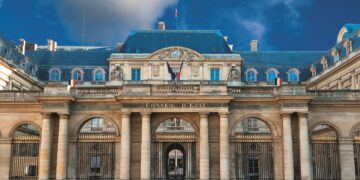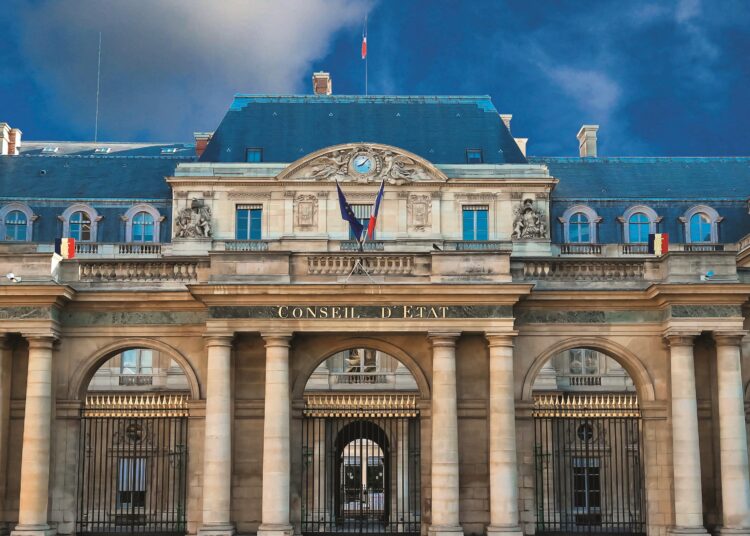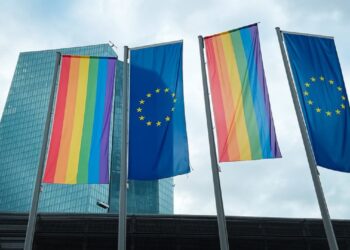Like many countries, France underwent the experience of strict “confinement” to face the COVID-19 crisis. This period lasted from March 16 to May 11. During this period, all public worship was prohibited. On strange bases: the decree framing the confinement was, in fact, a little contradictory, since it indicated that all gatherings of more than 100 people were prohibited, but that, in places of worship, all gatherings were by principle prohibited (regardless of the number of people), with the exception of funerals where we could not accommodate more than 20 people. Several jurists have said that it would therefore have been possible to celebrate public masses, at least up to 20 people and perhaps even up to 100 people. This is also what I believe. But what is certain is that the French bishops did not try to maintain public worship during this period. On the contrary, they have sometimes closed churches before the State even requests it. Obviously, the first motivation for this behavior was concern for the health of the faithful and of the whole population, but it is also likely that most religious leaders were particularly worried about the possible media repercussions of a continuation of the cult. Indeed, at the beginning of the epidemic, the press had severely criticized an evangelical rally in Mulhouse, supposed to have helped to spread the epidemic. Obviously, there is not much in common between an evangelical gathering, a catholic mass, a preach in the mosque or a ceremony in the synagogue, but we do not count too much on the religious culture of the media for this kind of “subtleties”! Let us add that the accusations against the evangelical gathering were slanderous – in particular because this gathering has, as far as we know, perfectly respected the sanitary rules then in force.
From May 11, a new step of progressive deconfinement began (a new step is expected on June 2). From this date, schools and businesses had to reopen gradually (according to rules that were not always very clear, moreover). But the Prime Minister, despite the clear request of the bishops who even offered him a precise and complete plan of deconfinement ensuring the greatest health security, refused to open the churches to public worship. The Ministry of the Interior, in charge of the question of worship, even explained “skillfully” that “prayer did not necessarily need a place of assembly” – manifestly ignoring everything about the faith of Catholics and the difference between a simple prayer and a mass. The tone went up. Several bishops expressed their incomprehension. Nothing helped, the government refused to see that a mass is not more dangerous than a museum visit (museums are reopened) or shopping at the supermarket – and probably much less than a kindergarten class .
11 associations seized the Council of State (the highest French administrative jurisdiction) to make recognize the religious freedom of the believers, and in particular of the Catholics (who were the most active in this battle). Among these associations, allow me to mention the AGRIF, an association active in particular in the defense of Christians, chaired by my friend Bernard Antony and of which I have the honor to be vice-president – as such, I was therefore one of the complainants in this case. A number of these associations will be dismissed – government decrees changing rapidly and rendering certain legal referrals obsolete. However, on May 18, the Council of State agreed with the faithful who demanded that freedom of worship be recognized as the fundamental freedom that it is in natural law and in French law. The government had 8 days to adapt its deconfinement decree. And he obeyed: since last Sunday, the health protection measures being saved, the public masses have resumed.
Several lessons can be learned from these adventures. The first is obviously that we must always fight to have our fundamental freedoms recognized. The only battles we are sure to lose are the ones we do not fight! It is also interesting to note that with the exception of a referral (led by clerics from various institutes attached to the traditional mass), all were carried out by laity. Many were moved by this fact. First, to say that these lay people were not “representative” – many of them being notoriously “right-wing” or “conservative”, sometimes even “reactionary”. Then, to say that they had jeopardized the dialogue between the bishops and the state. Finally, after the victory, to regret that other “trends” were not among the complainants. I think we have to keep reason. I, too, would have liked one or more bishops to be with us among the complainants, but the very firm positions taken by many bishops have helped to “put pressure” on the government and, in a way , helped with the final victory. I also believe that this victory is, as Bernard Antony put it very nicely, a “common good” and that it belongs neither to a given association, nor to a “sensibility”: our natural right to freedom won, it benefits everyone.
On the other hand, it is clear that, although many bishops have spoken clearly – I am thinking of course, in particular, of the bishops who are used to publicly supporting the faithful engaged in the defense of the natural family, marriage and innocent life, like Mgr Rey, Mgr Aillet, Mgr Ginoux and a few others, but also of Mgr Rougé, all-new bishop of Nanterre and former chaplain of parliamentarians, whose voice went far beyond his diocese -, the conference of the bishops of France (CEF) was very set back in this battle. It had of course published a very clear press release before the publication of the deconfinement decree, but, as soon as the Prime Minister told that he did not intend to give in, it published a press release calling for obedience to the government – which is obviously a duty for everybody, especially Christians, but only if the government does not violate a higher law like natural law! This last press release was rather badly received by a good number of the faithful. But, after all, the conference of bishops of France is not a governing body of the Church, it is the bishops who govern in their dioceses and the erasure of the CEF could thus be an excellent thing. In any case, it would be unfair to judge the action of bishops only by CEF press releases and, from my point of view, it seems quite healthy that the laity are on the front line in political and judicial battles – temporal action being their own specific mission. The CEF had launched in 1996 an association called Croyances et Libertés (Beliefs and Libertie) to support the religious freedom of Catholics. But, as far as I know, this association, in almost a quarter of a century, has never taken one single legal action. It had been launched, it seems, only against AGRIF, too right-wing and too traditionalist for the taste of some. But, very naturally, the AGRIF, led by laymen, was more comfortable in the field of temporal fight and it could do much more, without any episcopal mandate, than Croyances et Libertés, despite all the authority of its president (who is, according to its status, the president of the CEF). It seems to me as absurd to secularize the clerics as it is to clericalize the laity! We can only regret that “left-wing Catholics” do not launch, for their part, an association of the same type as AGRIF: the task is so immense that I can assure them that they would be welcome!
Last thing – and not the least: this fight allowed a rapprochement between various tendencies of what we now call, following the sociologist Yann Raison du Cléziou, the “observing Catholics”, that is to say the Catholics assiduous in the practices sacramental and attached to transmitting their faith to their children: regardless of their liturgical ties (and God knows if the liturgical quarrel has been hard in France in recent decades!), these “observing Catholics” (especially traditionalists and charismatic) were on the front line in the battle for freedom of worship – supported by their priests and by numerous bishops often from their ranks. In the long term, this rapprochement is decisive, not only for the Church, but also for France because these “observing Catholics” were also on the front line to defend natural marriage few years ago, and they form the main battalions of “social conservatism” as you say in the United States. Everything that contributes to bringing them together also contributes to strengthening them and therefore strengthening their weight in public life. This battle for freedom of worship will therefore certainly have consequences far beyond the next few weeks.




















Discussion about this post